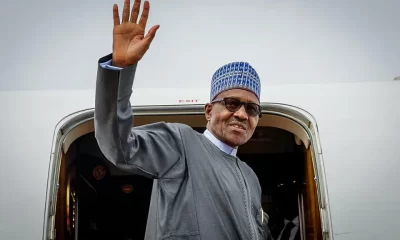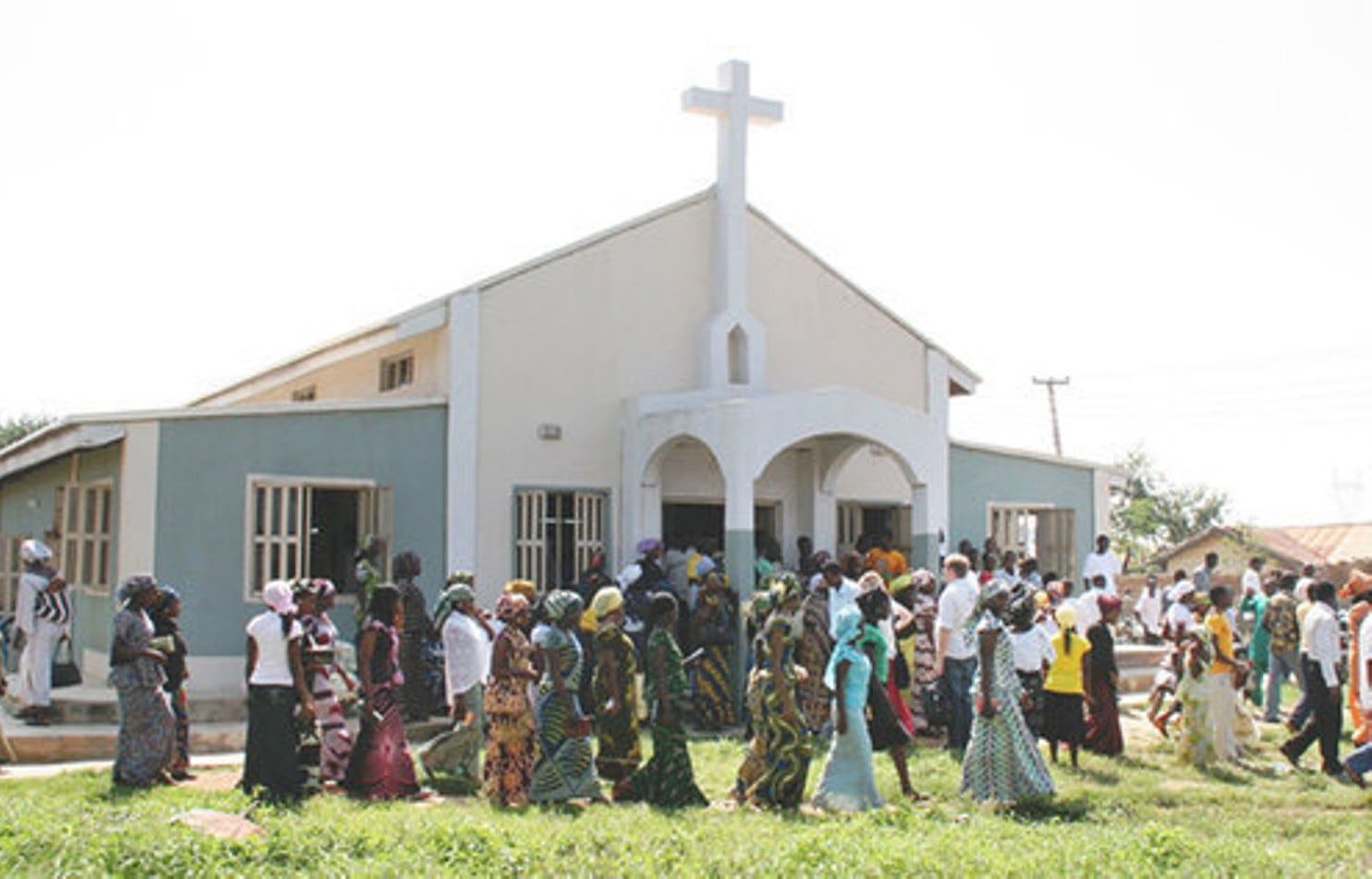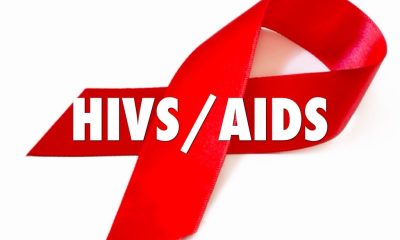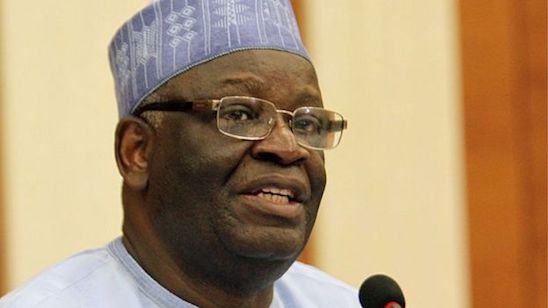COVER
Fuel Pump Price, Saudi Arabia and Grubby Arguments
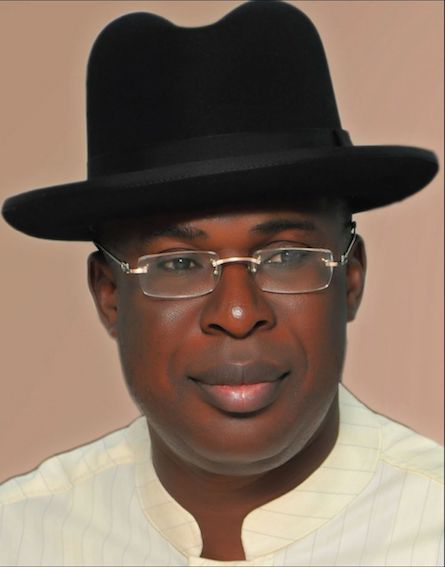
By Jerome-Mario Utomi
While waiting for the independence anniversary broadcast by President Muhammadu Buhari, on Thursday morning October 1, 2020, I stumbled on a statement by Sheikh Mohammed Bin Rashid Al Maktoum, Vice President and Prime Minister of the United Arab Emirate and Ruler of Dubai, where he stated thus:
God blessed UAE with a leadership of achievers, not egotists.
“Our leaders walk down the street without armoured cars and a large entourage of cars and motorcycles because they are not afraid of their people – they are one with them.
They feel and understand the pulse of the man in the street. With such a close and deep relationship between the leadership and the people, any decision taken by the former will be in the interest of the latter.This is the basis of a true vision – it is in the interest of the people”. To be sure, I listened afterwards with real curiosity to Mr. President’s broadcast while reflecting on the above.
Placing Al Maktoum words beside the content of Mr President’s broadcast enables one to understand more fully the essential ingredients of leadership foresights and objective.
At the end, not only did the analysis assisted me in understanding their priorities, but further clarified the age-long belief that the interest subjects take in their leader does not lie in the leader’s physical and intellectual abilities, but rather in what he can add to their lots in life’. Now, let’s be clear about what happened.
President Buhari during the broadcast, among other things, declared, in the circumstances, a responsible government must face realities and take tough decisions. Petroleum prices in Nigeria are to be adjusted. We sell now at N161 per litre.
A comparison with our neighbours will illustrate the point. Chad, which is an oil producing country, charges N362 per litre; Niger, also an oil producing country, sells a litre at N346. In Ghana, another oil producing country, petroleum pump price is N326 per litre.
Further afield, Egypt charges N211 per litre. Saudi Arabia charges N168 per litre. It makes no sense for oil to be cheaper in Nigeria than in Saudi Arabia. Clearly, Buhari’s arguments are well understood but not without difficulties.
And it will be naïve to proceed without spot incongruities while underlining his (Buhari) created ‘realities and the actual realities confronting the nation’.
To add context to the discourse, there is absolutely nothing wrong with comparing, admiring/copying other people/nation’s progress. Afterall, Tam-David West encouraged humanity to appreciate and admire the success of those who have really succeeded. And examples abound. First and very key, it is documented that before World War 11, Japan copied its corporate system from the West.
There were capitalists and labourers, haves and haves not. The big capitalists came into being in the late 19th century as a direct result of the Meiji government’s determination to catch up with the strong Western nations. Copying is by no means limited to Japan. When China discovered its potential to become a modern economy, it copied other nations by joining the World Trade Organisation, WTO.
Today, China has experienced a period of economic growth, the likes of which the world had never seen before. Its model blazes a new trail for other developing countries to copy and achieve modernisation as well as offers a new option for other countries which want to speed up their development. But there is a very big distinction to make.
In the present circumstance, there is a reason for concern that Mr. President’s recent comparison and inconsiderate declaration that it makes no sense for oil to be cheaper in Nigeria than in Saudi Arabia, suggests that what the nation is experiencing is no longer the first half of a reoccuring cycle but rather the beginning of something new.
And if we fail to change this mindset, chances are that we may as a nation continue in this thought-system that allows poverty, powerlessness and economic stagnation to thrive. It rings apprehension that the nation will continue to face new challenges.
Indeed, when one critically examines Mr. President ‘comparative analysis’, which for yet to be identified reason(s) was silent on the steps Saudi leadership is taking to reduce cost of governance and improve the life chances of citizens, it again amplifies the claim by Nigerians that if our founders could see the current state of their generation’s handiwork and access the quality of the present administration, they would be amazed at what leadership has become in the country.
At this point, it is important to ask: what suddenly informed the choice of Saudi Arabia as benchmark for determining petrol pump price in Nigeria as against market forces earlier claimed by the Federal Government?
Has President Buhari forgotten that unlike Nigeria, small scale businesses in Saudi Arabia are not petrol-dependent for their daily operation and the masses not preoccupied with buying of fuels for their cars/vehicles as Saudi Arabia is blessed with stable electricity and efficient transportation network?
At the moment, this is what this piece is proposing. If we must copy, let the Federal Government of Nigeria first copy the fact that Saudi Arabia, going by reports is dotted with the following refineries (government and private), all producing in various installed capacities and replicate same here at home: Riyadh Refinery 120,000 bbl/d (19,000 m3/d); Rabigh Refinery, 400,000 bbl/d (64,000 m3/d); Jeddah Refinery, 100,000 bbl/d (16,000 m3/d); Ras Tanura Refinery 550,000 bbl/d (87,000 m3/d); Yanbu’ Refinery, 225,000 bbl/d (35,800 m3/d); Yanbu’ Refinery (SAMREF) (Saudi Aramco/Exxon Mobil), 400,000 bbl/d (64,000 m3/d); Jubail Refinery (SATORP) (Saudi Aramco/Total), 400,000 bbl/d (64,000 m3/d); YASREF Refinery (Yanbu, KSA) (Saudi Aramco/Sinopec), 400,000 bbl/d (64,000 m3/d); Jazan Refinery (Saudi Aramco, opens 2016), 400,000 bbl/d (64,000 m3/d) and Jubail Refinery (SASREF) (Saudi Aramco/Shell), 305,000 bbl/d (48,500 m3/d). Again, as a country that had in the past met with challenges Nigeria still battles with, let Mr. President begin by asking Saudi Arabia how they are able to get the International Oil Companies, IOCs, to build refineries in the country.
And find out how their governments’ refineries function seamlessly, producing in their installed capacities unlike ours that gulp billions of Naira without result.
Most importantly, as part of the 60th Independence gift to Nigerians, the Federal Government urgently needs to understand why leaders in UAE can walk down the street without being afraid of their people instead of moving in armoured cars and large convoys of cars and motorcycles as is the case in Nigeria. This is the crux of this piece.
Utomi, is a Lagos-based media consultant, could be reached on jeromeutomi@yahoo.com
COVER
Agama Tasks African Capital Markets on Climate Adaptation Gap Finance

By Tony Obiechina, Abuja
The Securities and Exchange Commission (SEC), Nigeria has stressed the need for the mobilisation of capital markets to bridge the colossal financing gap for climate adaptation in Africa.The Director-General of SEC, Dr Emomotimi Agama said this while speaking on The Role of Capital Markets in Closing Financing Gaps for Climate Adaptation presented at the African Development Bank (AfDB) meeting.
He urged project developers and private sector actors to present bankable, pipeline-ready projects with robust environmental and social metrics in a bid to closing financing gaps for climate adaptation. Agama said that African capital markets could be achieved through market integration, aligning standards and adopting the International Sustainability Standards Board (ISSB).”Closing the climate adaptation financing gap in Africa is not a distant aspiration but a development imperative, and one that demands our collective ingenuity and capital””By integrating our markets, aligning standards, adopting the ISSB framework, and mobilising institutional capital across borders, we can build a climate-resilient future for all Africans,” he said.He noted that Africa, which contributes less than four per cent of global greenhouse gas emissions, bears over 25 per cent of climate-related losses.”Experts estimate our continent faces an annual climate adaptation financing shortfall of up to $100 billion by 2030.”The 2022 Africa Economic Outlook by the AfDB estimated that the continent needs around $500 billion of climate finance by 2030.”Africa will also need to invest more than three trillion dollars in mitigation and adaptation by 2030 in order to implement its Nationally Determined Contributions.”These figures are more than statistics, they translate into lost livelihoods in the Sahel, vanishing fish stocks in the Gulf of Guinea, and more frequent flooding in Lagos and Nairobi,” he said.According to him, these figures reflect a deepening divide between vulnerability and resilience.”The stark reality is undeniable. Africa, contributing minimally to historical emissions, faces severe impacts of a changing climate which includes devastating droughts threatening food security, rising sea levels, engulfing coastlines, and intensifying storms disrupting lives and economies,” he said.Agama added that the 2023 United Nations Environment Programme Adaptation Gap Report said Africa needs between $212 and $387 billion annually for developing countries’ adaptation by 2030.”Meanwhile, our current flows and commitments are a mere fraction of this amount. For Africa specifically, the gap is immense, estimated to be up to 50 times current funding levels,” he saidAgama said in 2017, Nigeria launched its sovereign green bond, the first in sub-Saharan Africa. Within months, it was oversubscribed by 2.5 times, driven by Nigerian pension funds and diaspora investors seeking both yield and impact.This he said demonstrated that local institutional capital can be mobilised for climate projects when the right instruments and confidence-building frameworks are in place.The SEC Boss posited that the ISSB Standards serve as the game-changer as the experiences in Nigeria for example, are not only innovating climate finance products but also shaping global standards for sustainability disclosures.According to him, “The Securities and Exchange Commission (SEC) Nigeria represents the country on the International Sustainability Standards Board’s Adoption Readiness Working Group (ARWG), which was tasked with implementing the new IFRS S1 & S2 Sustainability Disclosure Standards.“The ARWG finalised its Roadmap for Adoption, publicly exposed by the Financial Reporting Council of Nigeria and SEC Nigeria between February 3 and March 14, 2024. Feedback was rigorously reviewed and integrated. The roadmap outlines early Adoption, Voluntary Adoption (January 1, 2024 through December 31, 2026) and Mandatory Adoption (beginning January 1, 2027) All entities, excluding government bodies, must comply with staggered timelines.“This leadership positions Nigeria at the forefront of transparent, comparable, and decision-useful sustainability reporting across Africa.Agama noted that adaptation finance was critically underserved due to three major reasons namely perception problem, data and measurement gaps and risk aversion.”This is where our capital markets must step in, and where the ISSB becomes vital,” he said.To scale adaptation finance, the SEC DG urged deeper regional market integration, harmonised ESG standards, and deployment of tools like credit enhancements to de-risk early-stage climate investments.“Closing the climate adaptation financing gap in Africa is not a distant aspiration but a development imperative, and one that demands our collective ingenuity and capital. The recent journey in Nigeria proves that it can be done. By integrating our markets, aligning standards, adopting the ISSB framework, and mobilising institutional capital across borders, we can build a climate-resilient future for all Africans.“Let us seize this moment, as regulators, investors, governments, standard-setters, and development partners, to deepen African capital markets and finance the resilience of our continent and our people” he added.COVER
Dangote Refinery Symbolises Hope for Africa, Says ECOWAS President

By Andrew Oota, Abuja
The Economic Community of West African States (ECOWAS) has said the Dangote Petroleum Refinery is more than just a feat of engineering but also symbolizes hope for Africa.President of the ECOWAS Commission, Dr Omar Alieu Touray, Stated this during a visit to the state-of-the-art 650,000 barrels-per-day facility and declared the refinery as a beacon of hope for Africa’s future.
Touray said the facility was a clear demonstration of what the private sector can achieve in the drive for regional industrialisation. The delegation also included ECOWAS Commissioner for Infrastructure, Energy and Digitalisation, Sediko Douka; Commissioner of Internal Services, Prof. Nazifi Abdullahi Darma; Director of Private Sector/SME, Dr Tony Luka Elumelu; and Dr Touray’s Chief of Staff, Hon Abdou Kolley, among others. “What I have seen today gives me a lot of hope, and everybody who doesn’t believe in Africa should come here. Visiting here will give you more hope because this is exactly what our continent should focus on.”“We have seen something I couldn’t have imagined, and really the capacity in all areas is impressive. We congratulate Alhaji Dangote for this trust in Africa because I think you do this only when you have the trust, and he has a vision for Africa, and this is what we should all work to encourage.”Dr Touray noted that the refinery, which produces fuel to Euro V standard, is critical for enabling the ECOWAS region to meet its 50ppm sulphur limit for petroleum products—a standard many imported fuels fail to meet, posing health and environmental risks across member states.“We are still importing products below our standard when a regional company such as Dangote can meet and exceed these requirements,” he said. “The private sector must take the lead in ECOWAS industrialisation.”The ECOWAS Commission President used the visit to call for stronger collaboration between governments and the private sector, stressing that policy decisions must reflect the real challenges and opportunities experienced by African industrialists.“We believe our visit also serves as an opportunity to hear directly from Mr Dangote, about what the private sector expects from the ECOWAS community,” Dr Touray remarked, noting that as ECOWAS celebrates its 50th anniversary, the community is more committed than ever to bringing the private sector to the table—to listen to their perspectives and to understand how best to create an environment that works for them.“We cannot continue to make decisions on behalf of the private sector from a distance. Visits like this provide us with first-hand experience and direct insight into the challenges they face—challenges that authorities and government officials must work to address,” he added.Dr Touray said the time is ripe for the region to pursue an industrial strategy capable of addressing deep-rooted challenges such as youth unemployment, poverty, and insecurity.“We often speak about poverty eradication and youth employment, but the government alone may not have the capacity to achieve these goals. Only the private sector can deliver the scale of impact required, and it is essential that we listen to them, understand how these objectives can be met, and identify the bottlenecks they face so that they can be effectively addressed. This is the only realistic path to creating jobs and fostering genuine prosperity across our economies.”COVER
Benue Catholic Priests Raise the Alarm, Say Herdsmen Kill 50, Shut 15 Churches
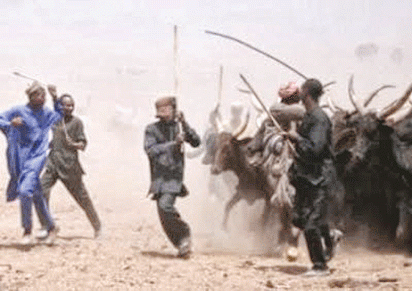
By Attah Ede, Makudi
The Nigerian Catholic Diocesan Priests Association (NCDPA), Makurdi Diocese has raised the alarm over continued deadly attacks by armed herdsmen in Benue State, revealing that over 50 people have been killed and 15 Catholic parishes have been forced to shut down in just one month.
At a press conference yesterday, the Chairman of NCDPA in Makurdi Diocese, Rev Fr. Joseph Beba, condemned the wave of violence, describing it as a calculated and coordinated effort to wipe out Tiv communities. He accused security forces, particularly the military stationed in the affected areas, of complicity and inaction.“Among those affected are Catholic priests, and this has led to the closure of 15 parishes in Makurdi Diocese alone,” Fr. Beba said, decrying what he described as the military’s silence and passivity while communities were being attacked.The priests detailed a series of recent attacks, including the shooting of Rev. Fr. Solomon Atongo, the priest in charge of St. John’s Quasi Parish, Jimba. Fr. Atongo was reportedly shot just 500 meters from a military checkpoint at Tse Orbiam, with no response from the stationed personnel. The community itself was later attacked.Other communities listed as victims of the violence include; Tse Orbiam, Ahume, Jimba, Nagi-Camp, Aondoana, Yelewata and Abegana — all located within the Makurdi Diocese.According to the priests, these assaults have resulted in numerous deaths, including women, children, and even a pregnant woman.“These acts are inhumane, barbaric, and a gross violation of the sanctity and dignity of human life,” the priests stated. They further suggested that the attacks may be linked to Bishop Wilfred Anagbe’s recent testimonies in the U.S. and Europe about the persecution of Christians in Nigeria.“These attacks are a direct assault on the Bishop of Makurdi Diocese and the Catholic Church he represents. They appear coordinated and retaliatory,” they said, adding that the bishop’s home village of Aondoana was also attacked on May 25, with clergy and nuns fleeing into the bush for safety.In yet another attack on May 26, terrorists invaded Nagi-Camp, only five kilometers from a Nigerian Army base in Agagbe, and still, there was no military intervention. The following night, Yelewata community in Guma Local Government Area was attacked, with an entire family wiped out and Revd. Fr. Jonathan Ukuma narrowly escapes assassination.The priests lamented the growing sense of abandonment, noting that neither the federal nor state government had visited the victims or shown solidarity, even as communities were displaced and religious leaders attacked.“We are not sure whose side the military is on. Their behavior raises serious suspicions of complicity,” they said, citing the increasingly unsafe Naka-Makurdi and Taraku-Naka roads as further proof of the deteriorating security situation.They issued a direct call to Governor Hyacinth Alia, urging him to act decisively against what they called “ethnic cleansing” of the Tiv people. They also demanded that President Bola Tinubu declare full-scale war on the terrorist elements identified by Governor Alia as foreign invaders.“Failure to act decisively will be seen as indifference or complicity. To be silent is to die twice,” they warned.The priests also called for immediate government compensation for victims and the return of displaced persons to their ancestral lands, insisting that the government’s constitutional duty is to protect the lives and dignity of its citizens.Reaffirming their commitment to the gospel, the clergy said they would not be silenced and encouraged Nigerian youths to be prepared to defend their faith, farmlands, and communities within the bounds of the law.“The right to self-defence is inalienable for all citizens,” they declared.Kidnappers Intercept Another Benue Links Bus, Abduct 10 PassengersExactly one month after gunmen suspected to be kidnappers hijacked a Benue Links bus at Ikobi in Otukpo local government area, killed the driver and kidnapped 14 passengers on board, gunmen have again hijacked another Benue link bus and kidnapped 10 passengers including the driver.The latest incident happened along the Owukpa–Orokam road in Ogbadibo Local Government Area of Benue State.A resident in Owukpa community identified as Grace Ogwuche who spoke to DAILY ASSET on phone in Makurdi, said 9 passengers, including the driver of the vehicle, were kidnapped, while one female passenger managed to escape.According to her, the incident occurred at about 7PM on Saturday while the victims were returning from Orba market in Enugu to Owukpa community in Ogbadibo.She maintained that the gunmen ambushed the Benue Link and whisked away all the passengers, including some women who were still breastfeeding their children.”They shot the driver and one other person, causing the vehicle to lose control and veer off the road. The other passengers were later kidnapped.”I want to call on the Chairman of Ogbadibo Local Government Council to liaise with relevant security agencies to act fast to rescue the victims.“The area has long been a danger zone, and no serious security network is in place to stop or reduce these attacks,” he warned.One of the victims, who sustained severe gunshot wounds during the attack, was left behind as a result of excessive bleeding that could have compromised the abductors’ location.The victim is presently receiving treatment at the intensive care unit of St. Mary’s Hospital in Okpoga, Okpokwu local government area.When contacted, the Leader of the Owukpa vigilante group, Amos Agada, who confirmed the incident, said as of Sunday morning, June 1, the kidnappers had not contacted any of the victims’ families.According to him, the local security operatives were already making efforts to rescue the abducted passengers.Also, a community leader, Hon Adikwu Daniel, who raised the alarm in a statement, urged the Chairman of Ogbadibo Local Government Council and security agencies to act swiftly to rescue the victims and install a sustainable security presence along the dangerous route.“The area has long been a danger zone, and no serious security network is in place to stop or reduce these attacks,” he warned”, he said.When contacted the state commissioner for energy and transports, Barrister Omale Omale, said he was not aware of the development.”I kindly refer you to the general manager of Benue Link. He has the authority to speak on my behalf, although he is yet to bring the incident to my knowledge”, Omale said.However, the information officer of Benue Link Transport Company, Ehi Johnson, told DAILY ASSET that he can’t speak on the latest development.He promised to get across to journalists at the appropriate time.”Right now, I can’t speak on the matter yet. I will get back to you (journalists) after at the right time. But for now, give me little time.Meanwhile, Benue State Command Police Public Relations Officer (PPRO), Udeme Edet could not be reached, as she did not answer her phone when called.She also did not respond to a text message sent to her mobile phone at the time of filing this report.Over 30 Murder in Renewed Benue AttackAt least 30 people have been reportedly murdered in a renewed attack by suspected herdsmen on Edikwu Ankpali community in Apa Local Government Area of Benue State.DAILY ASSET gathered that the dreaded killer herdsmen invaded the community at about 6:30PM yesterday and started shooting sporadically, killing anyone on sight.A local source who confirmed the incident, said many residents were also taken away to unknown destination during the deadly assault.The local who identified himself as Owoicho Daniel said that the community was completely were sacked by the armed attackers.”As I speak with you, there is no single object in the community. It was an unprovoked attack. We were taking unaware. Some people went to evening service, while others at beer joint when they killers came.”It is an evening one can never imagine. Security personnel stationed at the area were overpowered as they look so helpless.Government must do something about these incessant killings and attacks. We have be living in fear for the past two months. The attack is still on going. About 30 people have been killed so far while several people have gone missing”, he said.Effort to get confirmation from the Benue State Police Command proved abortive as the Police Public Relations Officer (PPRO), Udeme Edet could not be reached, as she did not answer her phone when called.She also did not respond to a text message sent to her mobile phone at the time of filing this report.
